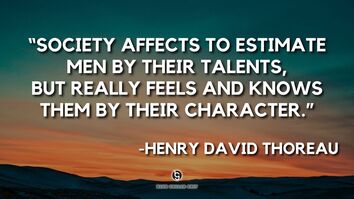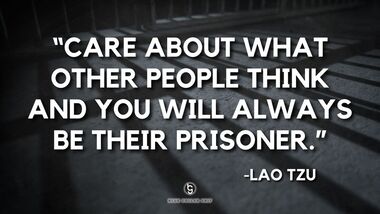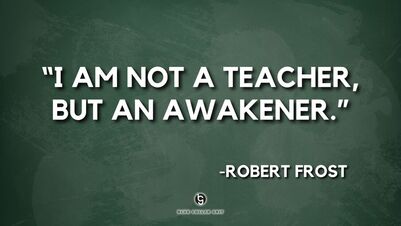The Talent FallacyIt’s March Madness, the greatest sporting event on earth! Over the course of the next few weeks buzzer beaters will break hearts and keep dreams alive, tiny mid-majors will compete against tradition-rich blue bloods, and players we’ve never heard of will out-perform guaranteed lottery picks.
It’s entertaining, infuriating, and exhilarating all at the same time. It never fails to deliver. Of course, most people love it the most for the upsets. Highly rated teams from big conferences with enormous fan bases being knocked out of the tournament by a team whose location is a mystery and look like they finished second at the local YMCA winter men’s league. These matchups provide the lifeblood of the entire tournament. The question is, why do the upsets happen? The larger schools almost always have teams with more talent - higher recruits, bigger athletes, more skilled basketball players … so, why do they lose? How can these smaller schools with lower rated recruits, smaller players, with less skill beat the goliaths? There are many reasons it happens, but it all boils down to one key point that coaches, and business leaders, miss on over and over and over: Talent is overrated. Why Should We Care? We do the same thing in the ‘real’ world. When hiring, or putting teams together, our focus is always on finding the most talented candidates. I mean, if the purpose of your resume isn’t to highlight your talents, then what is it? Of course, there is a certain level of competency required to fill any role on a team, but once that base level is met virtually everything else that leads to success is unrelated to talent. The mindset around talent says more is always better when most of the time, enough is usually best. While maximizing talent remains at the top of most employer’s wish lists, the best leaders understand the idea of a talent threshold - more is not always better. And, once that threshold is met, they turn their attention to critical behaviors that allow individuals to function at maximum capacity within a team. Soft skills like humility and emotional IQ are easy victims of this relentless quest for talent. Partially because they’re harder to see and partially because they simply are not valued enough. REAL TALK - Action Steps When your team is struggling to reach its goals, the answer is typically not a lack of talent. Yet, insufficient talent is the most common scapegoat for underperformance. Likewise, when your team is performing at its best, the reason is rarely due solely to your talent. Nonetheless, a team’s success is almost always attributed simply to one thing: talent. Here are a few characteristics that are every bit as deserving of credit as talent. *Pat Lencioni’s The Ideal Team Player
Contrary to the popular approach to team structure, talent alone is not king. Unless accompanied by a few other critical attributes, talent can be just as detrimental as it is beneficial. Checkout Surrender the Outcome on Amazon and order our new book The Score That Matters with Ryan Hawk & Brook Cupps. The latest blog from Blue Collar Grit can be found here!
1 Comment
Faith & ConfidenceFaith and confidence are both critical to our development, leadership, and fulfillment in life. However, they are not the same thing even though many people try to treat them as such. Here are two examples to illustrate the difference:
In order to be our best, we need both. In order to be the best leader, we need to help those we lead have both. Why Should We Care? Excellence is only possible through the merging of faith and confidence. Confidence without faith is hollow. It produces moments of excellence surrounded by long periods of underachievement. It’s quick to claim excellence and superiority, while realizing the fragility of each unstable performance. Confidence without faith is an unsustainable model for excellence. It lacks the foundation, fabric, of excellence: a need and desire to improve. Confidence alone fails to value work. Faith without confidence is wasteful. It works, sacrifices, and grows only to be sabotaged by a fear of being seen. It forms the precise foundation necessary to sustain excellence, only to back away when the starting gun sounds. Faith without confidence will always fall short. It lacks the fearlessness and disregard for judgment required by consistent excellence. Faith alone fails to value risk. Faith and confidence, together, provide the perfect formula for sustained excellence. Belief plus work. REAL TALK - Action Steps The idea that belief and confidence are critical for high achievement is not new or revolutionary. It’s likely quite obvious if you pay any attention to the people around you who consistently perform at a high level and the people who struggle to maintain excellence. The challenge arises in establishing, growing, and living with faith and confidence. Here are a few ideas for each:
Faith and confidence are inseparable when we are at our best. Helping those we lead to grow in each should be one of our primary goals as a leader. Checkout Surrender the Outcome on Amazon and order The Score That Matters with Ryan Hawk & Brook Cupps before its release in March 2024. The latest blog from Blue Collar Grit can be found here! Packing LightIf you’re going on vacation, how long before you leave do you start thinking about what you’re going to pack? I’m convinced there are two camps of thought on this question:
We have very different approaches to packing due to this difference as well. She packs on a “just-in-case” basis which leads to approximately sixty percent of the things she packs never making it out of the suitcase. I take a more minimalist approach to packing which leads to about seventy-five percent of what I pack being worn multiple times. I operate with the mindset that if I’m not sure I’ll need it, then I’m not taking it. My wife operates with the mindset that if she might need it, then she is taking it with her. Both approaches have accompanying burdens that must be accepted. For her, she has to drag around a bunch of stuff she’s never going to use and she commits a month of mental contemplation to a decision on each item to determine if it makes the cut. I don’t have to lug around a bunch of unnecessary items or waste bandwidth on a month’s worth of decisions. However, I do occasionally end up on vacation without a few things that I need. She might say more often than occasionally. I would say, it’s always worked out just fine. Why Should We Care? What are you carrying with you that you don’t need? Don’t lie to yourself. There’s stuff. Here are a few:
REAL TALK - Action Steps It’s easy to say “just let go of it” but much more difficult to actually do it. Here are a few ideas to help you decide what you should be packing with you and what you should leave behind.
We have become accustomed to loading our suitcase with far too many thoughts, concerns, and opinions - of both ourselves and others. These do nothing but cloud our ability to live, and appreciate, our own values consistently. By eliminating the unnecessary we make room for the essential. Checkout Surrender the Outcome on Amazon and order The Score That Matters with Ryan Hawk & Brook Cupps before its release in March 2024. The latest blog from Blue Collar Grit can be found here! Being A CoachThere’s a difference between coaching and being a coach. As insignificant as the semantics may seem, the gap between the two is seismic. Sure, both carry a clipboard, ride the team bus, and have a whistle around their neck but that is about where the similarities end.
When you’re coaching you count the hours and know the salary. You view worthwhile as an exchange of time for money or, worse yet, a means to the power the title of “Coach” provides. Value is gauged solely by compensation and justified by wins. A coach knows neither the hours nor the salary because both are secondary, even insignificant, compared to the purpose. The exchange is not transactional, but transformational. Value is gauged by change, progress, and growth into something neither knew, but both hoped, existed before. And, the timeline is unknown, but definite at the same time. It will make sense … at some point. When you’re coaching you face challenge after challenge, disappointment after disappointment. Much of the time it seems like the universe is plotting against you. The ball rarely bounces your way and it seems you are the victim of bad luck far more often than you are the recipient of good luck. A coach doesn’t notice obstacles or challenges. He is so consumed by his purpose that any roadblock is simply viewed as part of the path. The way the ball bounces is irrelevant, just go get it. The glass being half full or half empty doesn’t matter either, a coach knows he is holding the pitcher. When you’re coaching, your record defines your success. When you’re a coach, you define your success because you know that sometimes the best efforts don’t result in the higher score and sometimes a win on the scoreboard is far from the best your team has to offer. When you’re coaching, you celebrate wins and agonize over losses. When you’re a coach, you celebrate people and agonize over missed relationships because you know that the wedding invitation, child announcement, and five-year-later text message to let you know how impactful the lessons they learned while playing for you were are infinitely more memorable. When you’re coaching, you correct the behavior at the expense of the player. When you’re a coach, you love the player and correct the behavior because you know it’s the behavior, not the player, that will help them become a quality husband, father, and friend. When you’re coaching, you shout criticism and withhold praise. When you’re a coach, you shout praise and whisper criticism because you understand that the power of belief is paramount and that both praise and criticism can grow hope when delivered properly. When you’re coaching, connection and trust are a bonus. When you’re a coach, connection and trust are the foundation because you know that no influence or impact occurs without them. And, without the prospect of impact, coaching is nothing more than puppeteering. When you’re coaching, on time is on time. When you’re a coach, early is on time and on time is late because you want your players to respect their own time and the time of their teammates. When you’re coaching, you compare the past or look to the future. When you’re a coach, you stay in the present because you know it’s the only place progress can be made, dreams can be accomplished, and fulfillment can take place. When you’re coaching, you clock in and you clock out. When you’re a coach, you never clock out because you know the example you set is the standard those you lead will believe is acceptable. When you’re coaching, you work enough. When you’re a coach, you just work. It never ends. It’s never enough. And, you never view it as what the real world calls work anyway. You don’t work, you just coach. When you’re coaching, hard is a necessary evil. When you’re a coach, hard is the most glorious aspect of the entire process because you know everything worth aspiring to is on the other side of hard. And, no one knows who they truly are until things get really, really, really hard … but from then on, they know and nothing can stop them. When you’re coaching, you love the sport. When you’re a coach, you love the player, and the team, and the sport. But, you also love every preseason conditioning, every locker room, every practice, every bus ride, every pregame, every loss, every win, every apology, every high five, every hug … you love it all. When you’re coaching, you’re quick to give and quicker to take. When you’re a coach, you give with no expectation of anything in return because you know the gift you’re giving may not truly be received for another five, or even then, years. When you’re coaching, the game starts and the game ends. When you’re a coach, the game never ends. Coaching is the greatest calling in the world. Everyday you have the opportunity to change the world. The opportunity to help another person find their path in life, discover what they believe, and live an intentional life at a standard they didn’t even know existed. It’s not something you do. It’s who you are. Checkout Surrender the Outcome on Amazon and order The Score That Matters with Ryan Hawk & Brook Cupps before its release in March 2024. The latest blog from Blue Collar Grit can be found here! |
About bcI'm a teacher, coach, and parent seeking excellence while defining success on my own terms. Archives
July 2024
Categories |





 RSS Feed
RSS Feed